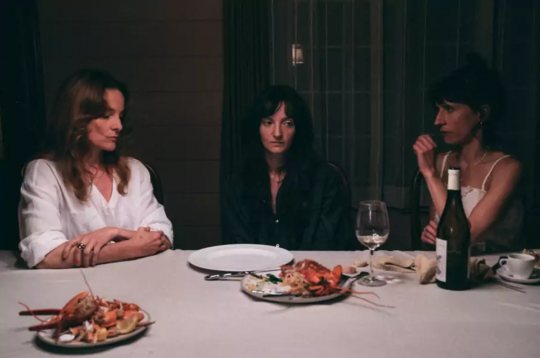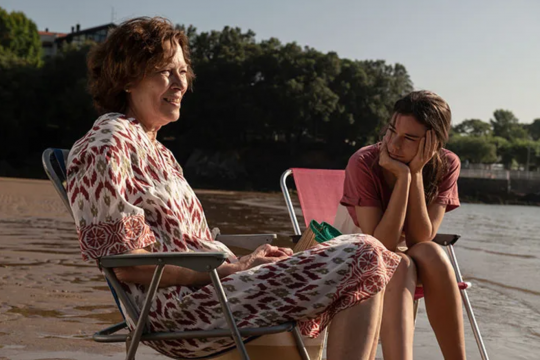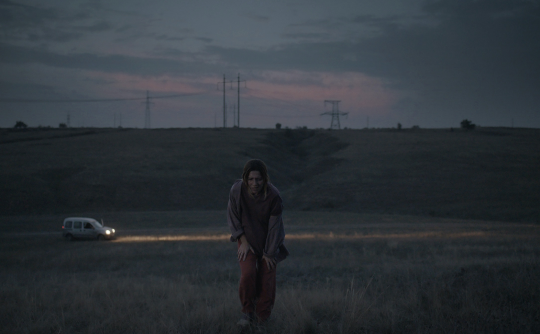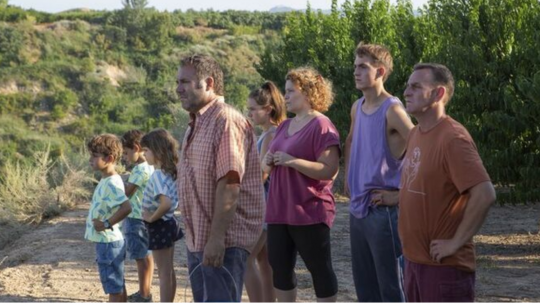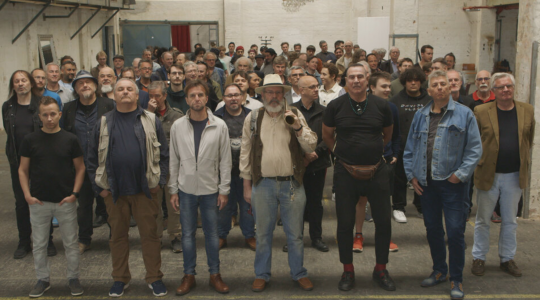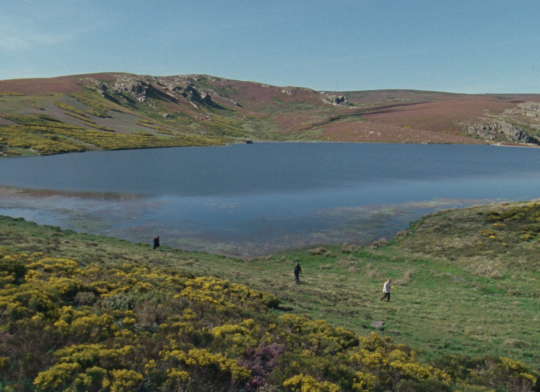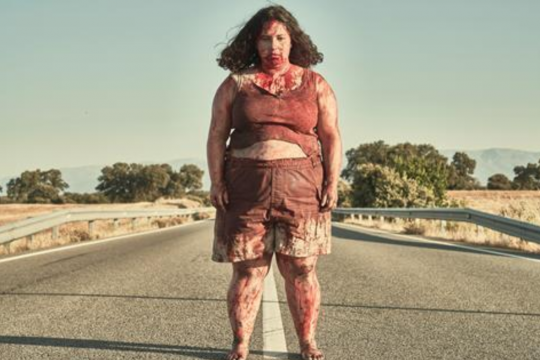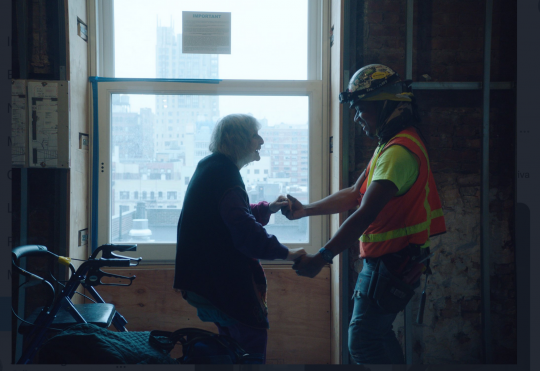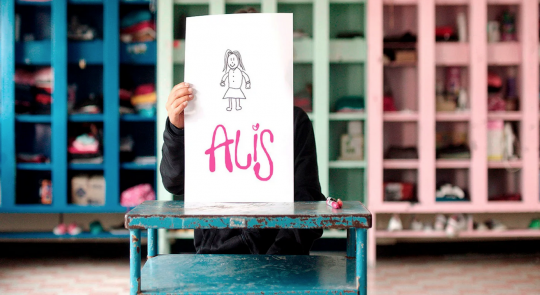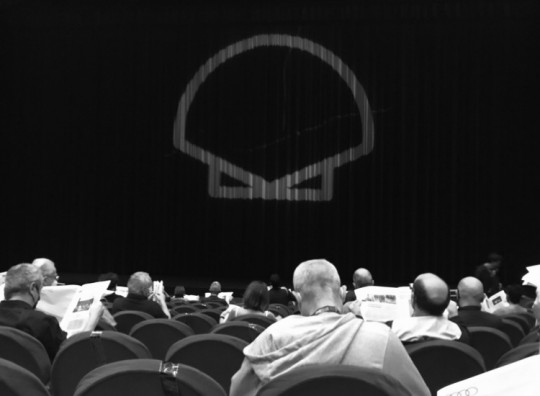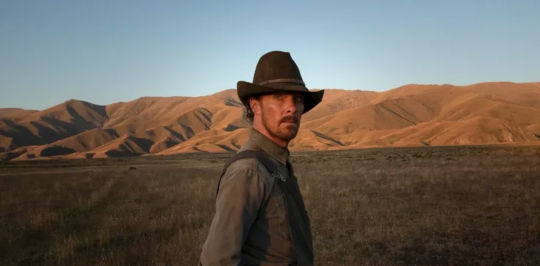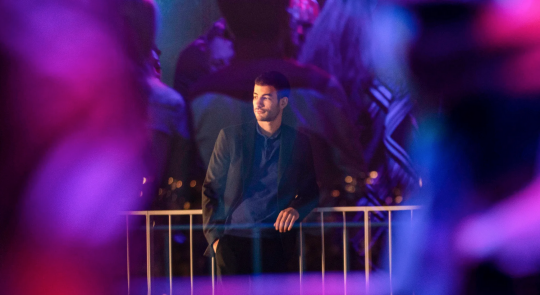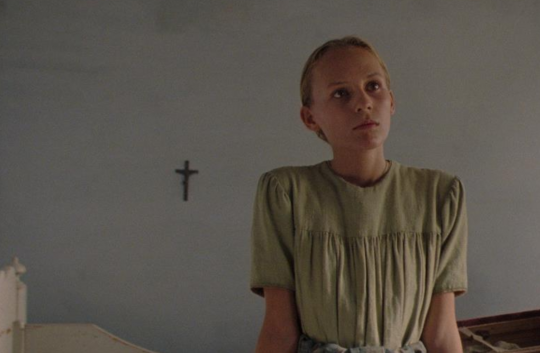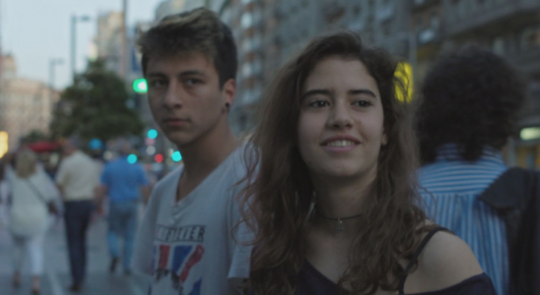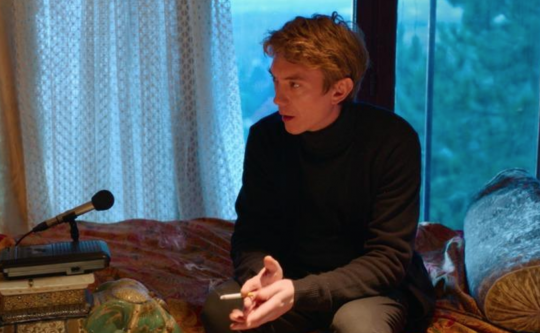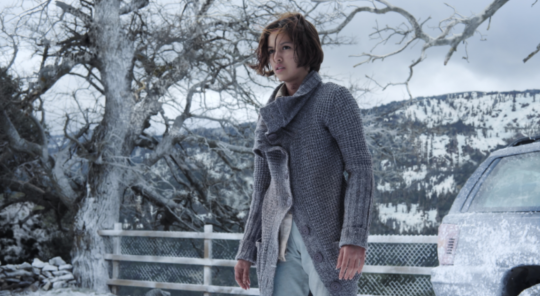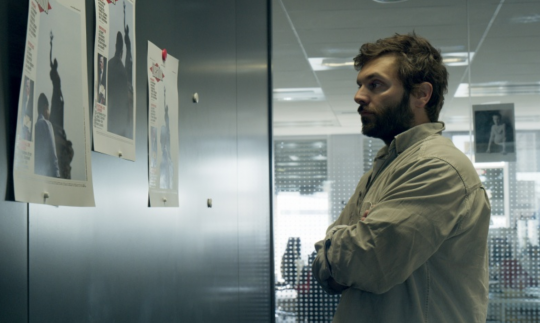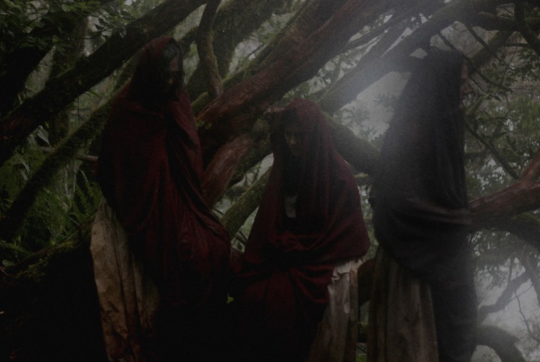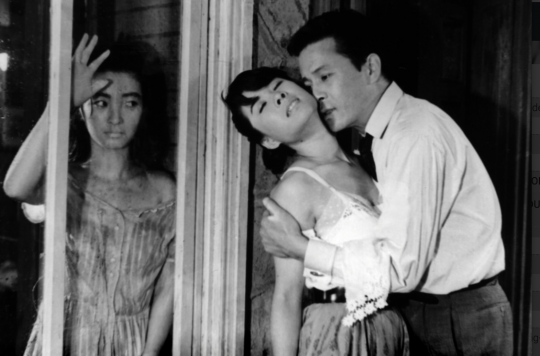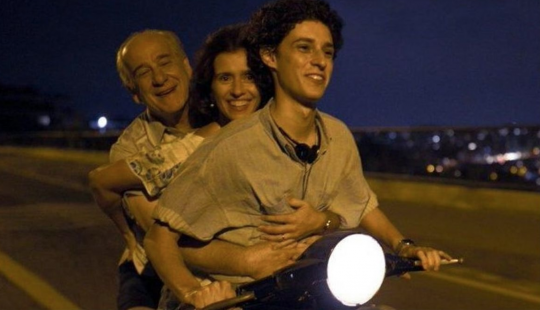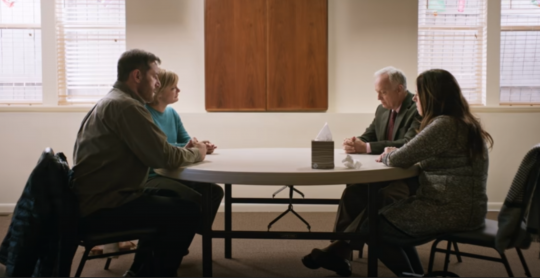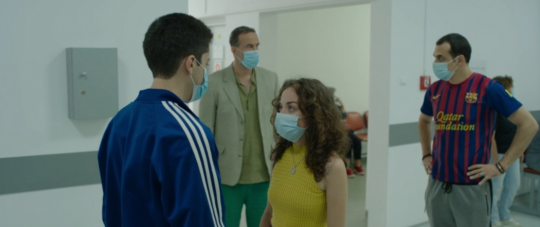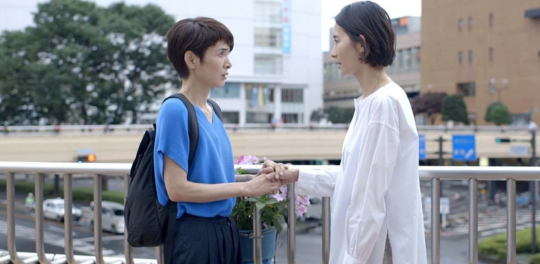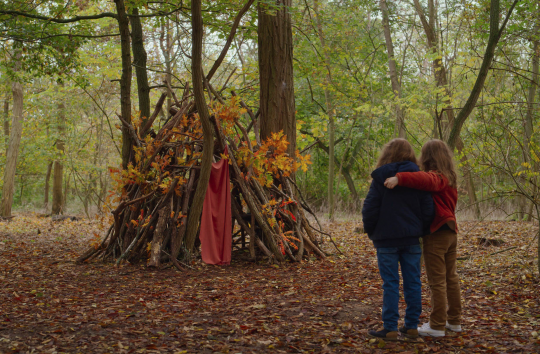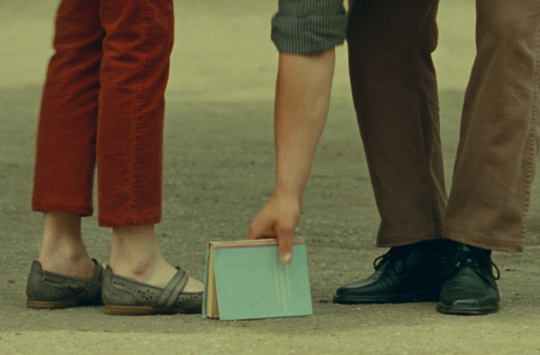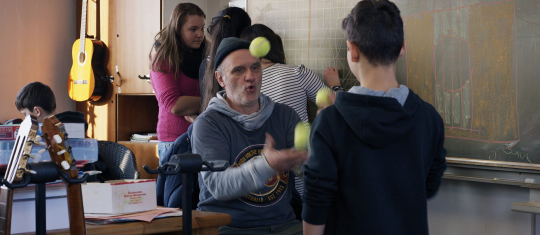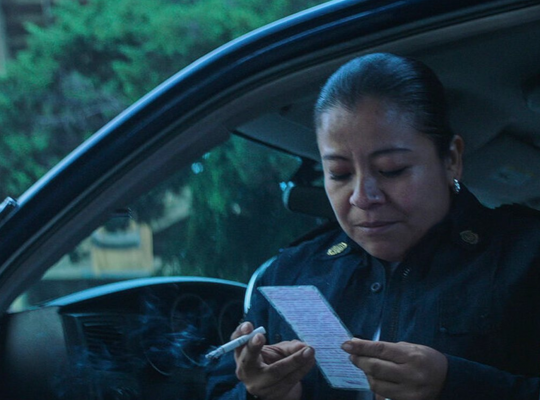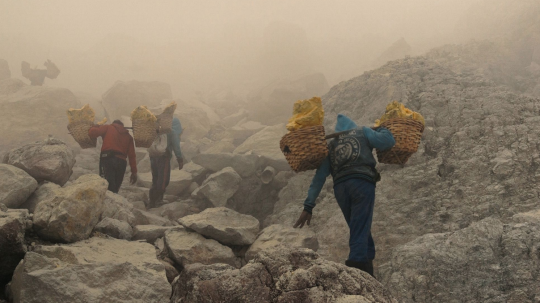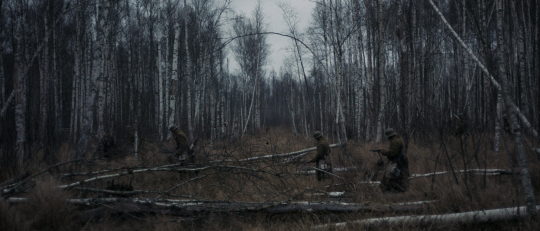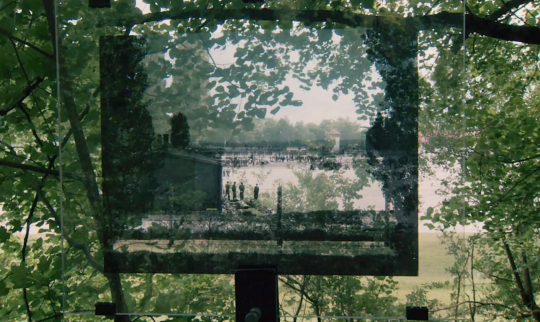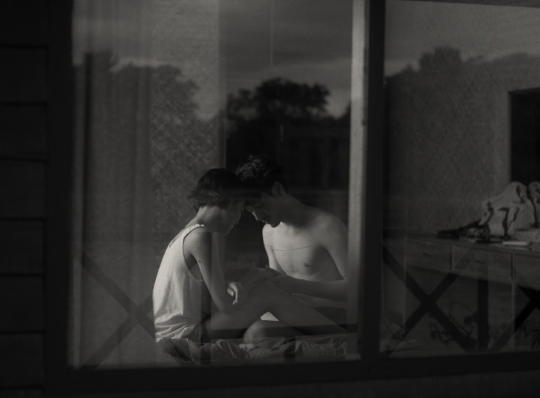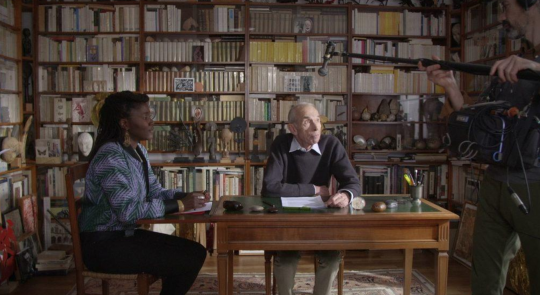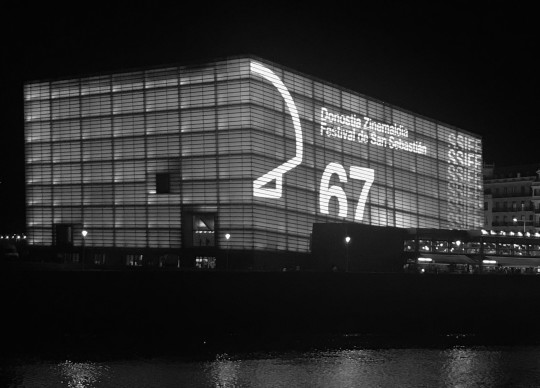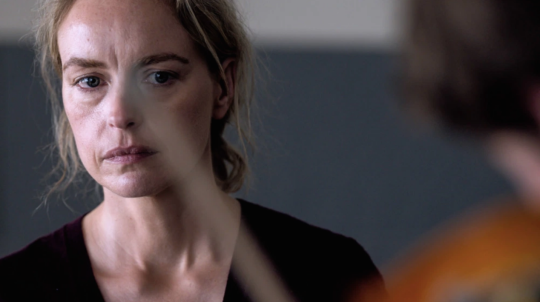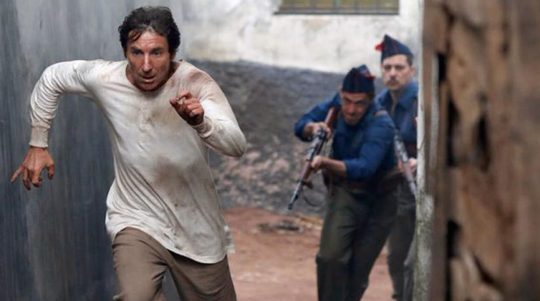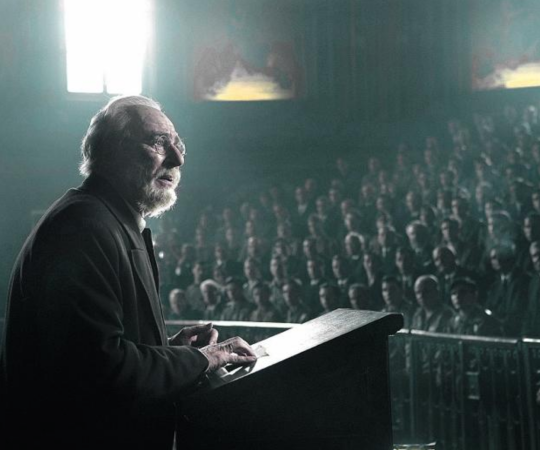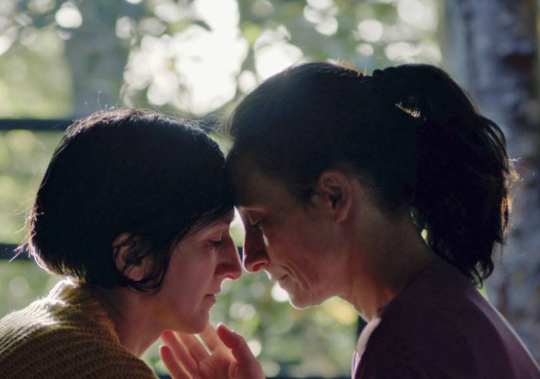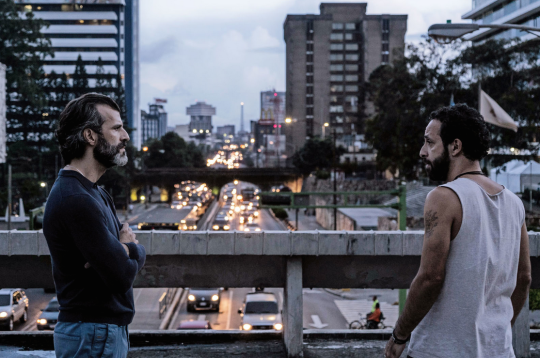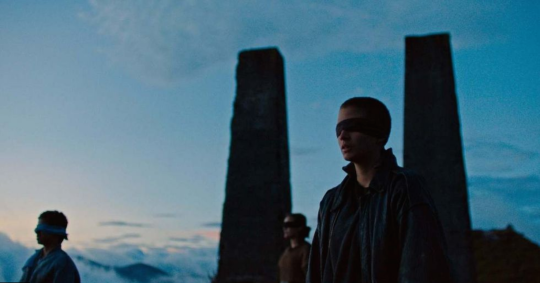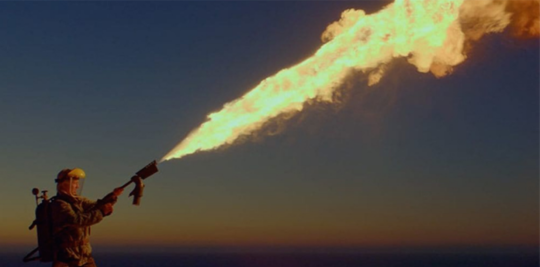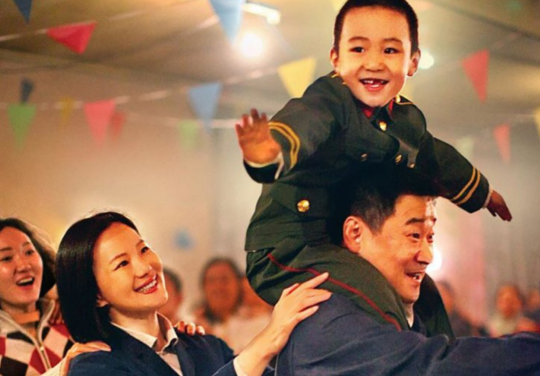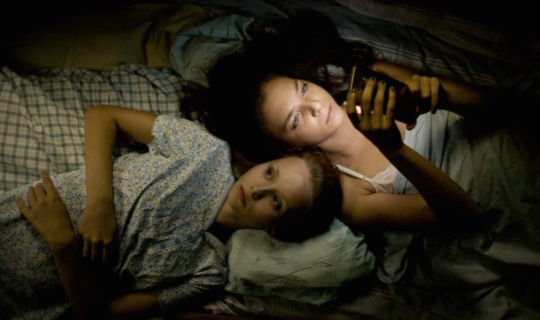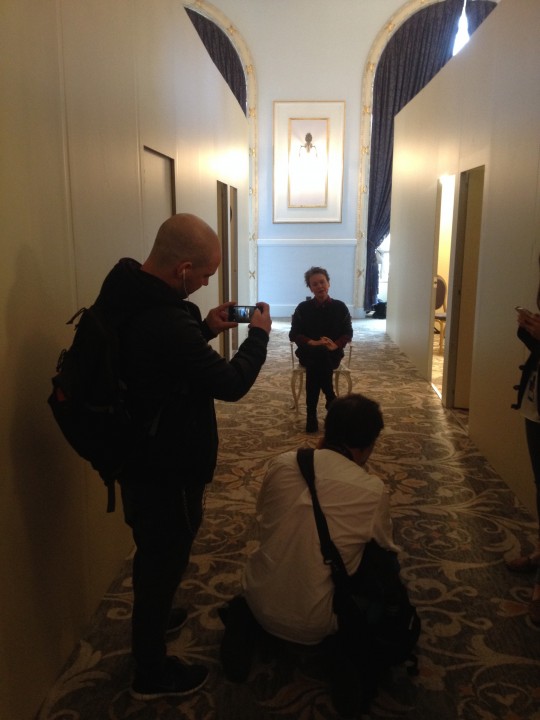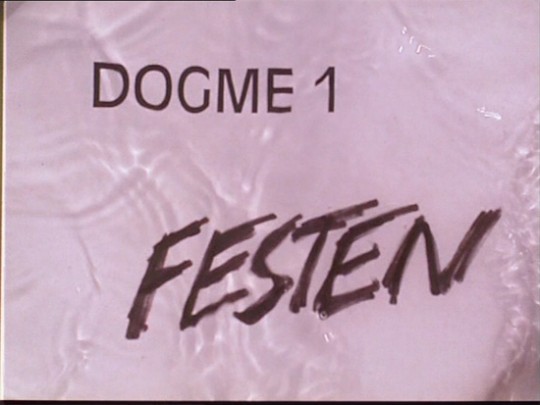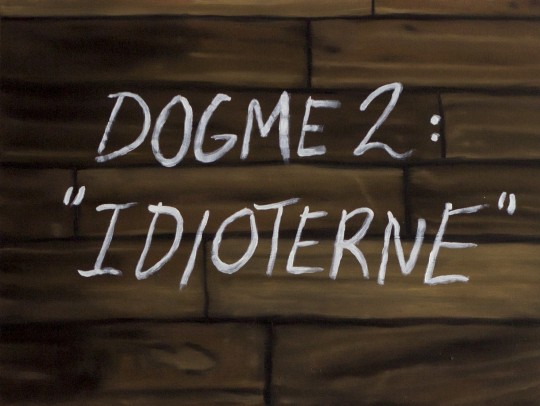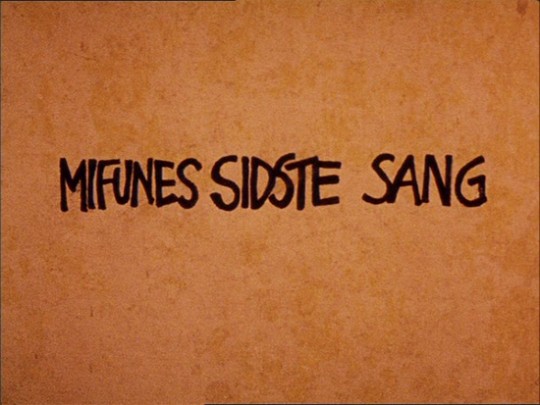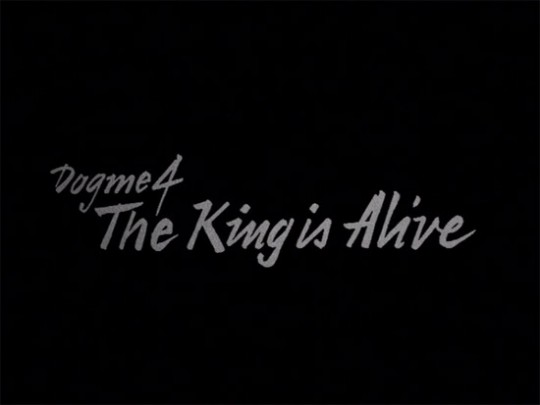(Partial) Top Berlin International Film Festival & European Film Market
Sin orden de preferencia / In no order of preference
Mi vacûÙo y yo / My Emptiness and I. AdriûÀn Silvestre
Lo que hacen AdriûÀn Silvestre y Raphaû¨lle Pûˋrez es maravilloso y muy valioso. Una pelûÙcula tan profunda y valiente como fûÀcil de ver y empatizar. Raphaû¨lle hace una inmersiû°n en sûÙ misma que muy pocas veces se ven el cine de esta forma tan sincera. Entre la realidad, la ficciû°n y el testimonio personal, las posibles limitacionesô narrativas de la pelûÙcula tambiûˋn son su virtud.
What AdriûÀn Silvestre and Raphaû¨lle Pûˋrez do is wonderful and very valuable. A film as deep and brave as it is easy to watch and empathize with. Raphaû¨lle makes an immersion in herself that is rarely seen in cinema in such a sincere way. Between reality, fiction and personal testimony, the possible limitations of the film are also its virtue.
Un ûˋtûˋ comme ûÏa / That kind of summer. Denis CûÇtûˋ
El director canadiense Denis CûÇtûˋ sigue el recorrido emocional de tres mujeres que intentan curar sus heridas personales y sexuales durante un mes de verano en una casa de reposo en el campo. Una interesante y sû°lidaô pelûÙcula sobre los diferentes aspectos de la sexualidad femenina sin obviar aspectos provocadores pero que finalmente se conforma un relato emotivo y bastante austero en su forma.
Canadian director Denis CûÇtûˋ follows the emotional journey of three women who try to heal their personal and sexual wounds during a summer month in a rest home in the countryside. An interesting and solid film about the different aspects of female sexuality without omitting provocative aspects, but which in the end forms an emotional and rather austere story.
Cinco lobitos / Lullaby. Alauda Ruiz de Azû¤a
La primera pelûÙcula de la directora Alauda Ruiz de Azû¤a es un bellûÙsimo ejercicio sobre la maternidad vista desde una doble perspectiva, como madre y como hija, sin obviar los aspectos mûÀs positivos y conflictivos de ambos roles. Es tambiûˋn un trabajo sobre los diferentes roles de las mujeres madres en dos generaciones diferentes y los desafûÙos que enfrentan en ûˋpocas tan distintas. AdemûÀs, es un gran trabajo sobre la familia desde un punto de vista femenino.ô Bajo una parente sencillez, muy basada en los detalles, destaca el trabajo admirable de dos grandes actrices como son Laia Costa y Susi SûÀnchez, que dotan de sinceridad a sus papeles, sin olvidar a Ramû°n Barea.
Director Alauda Ruiz de Azû¤a’s first film is a beautiful exercise on motherhood seen from a double perspective, as a mother and as a daughter, without ignoring the most positive and conflictive aspects of both roles. It is also a work about the different roles of women mothers in two different generations and the challenges they face in such different times. A simple film, very much based on details, it is supported by the admirable work of two great actresses, Laia Costa and Susi SûÀnchez, who give truth to their roles.
Klondike / Klondike. Maryna Er Gorbach
Presentada en el Festival de Sundance, Klondike es una pelûÙcula premonitoria por estrenarse pocos dûÙas antes en la Berlinale pocos dûÙas antes de la invasiû°n de Ucrania por Putin. Es tambiûˋn un viaje a los origenes del conflicto con un hecho que ahora puede resultar casi mûÙnimo (el derribo de una aviû°n de Malasian Airlines) por medio de un dispositivio audiovisual tan brillante como desgarrador y dramûÀtico, con aspectos que rayan en el surrealismo y el absurdo.
Presented at the Sundance Film Festival 2022, Klondike is a premonitory film, premiering a few days before Putin’s invasion of Ukraine at the Berlinale. It is also a journey to the origins of the conflict with an event that may now seem almost minimal (the shooting down of a Malaysian Airlines plane) through an audiovisual device as brilliant as it is heartbreaking and dramatic, with aspects bordering on surrealism and absurdity.
Alcarrû s / Alcarrû s. Carla Simû°n
Ganadora del Oso de Oro, la segunda pelûÙcula de la catalana Carla Simû°n es mûÀs compleja y ambiciosa narrativamente y requiere una implicaciû°n mûÀs activa del espectactador. Asistimos a una elegûÙa sobre la desapariciû°n de una forma de vida en el campo y la agricultura tradicional narrada con sinceridad, precisiû°n y minuciosidad a travûˋs de un grupo increûÙble de actores no profesionales, logrando un bellûÙsimo fresco familiar crepuscular. Como en Verano 1993, Simû°n refleja con especial maestrûÙa los ritos y juegos de la infancia, caracterûÙstica que se ha convertido en una de las marcas reconocibles de su forma de hacer cine.
Winner of the Golden Bear, the second film by the Catalan director Carla Simû°n is more complex and ambitious narratively and requires a more active involvement of the viewer. We witness an elegy on the disappearance of a way of life in the countryside and traditional agriculture narrated with sincerity, precision and thoroughness through an incredible group of non-professional actors, achieving a beautiful twilight family fresco. As in Verano 1993, Simû°n reflects with special mastery the rites and games of childhood, a characteristic that has become one of the recognisable marks of his filmmaking.
Mutzenbacher / Mutzenbacher. Ruth Beckermann
La nueva pelûÙcula de Ruth Beckermann toma como punto de partida la novela del mismo tûÙtulo Josefine Mutzenbacher o la historia de una prostituta vienesa contada por sûÙ misma, publicadada anonimamente en Viena en 1906. Prohibida durante dûˋcadas, fue leûÙda clandestinamente por diferentes generaciones, y solo muy recientemente, se ha atribuido la autorûÙa de la novela a Fûˋlix Salten, autor de Bambi. La originalidad de la pelûÙcula de Beckermann consiste en reunir a 100 hombres de diferentes generaciones para que lean diferentes pasajes de la novela en un sofûÀ siguiendo las indicaciones de la directora. El resultado produce una nueva “lectura” de la novela desde un nuevo punto de vista debido a las diferentes reacciones y pensamientos que origina la lectura o representaciû°n en sus protagonistas sin que en ningû¤n momento la directora ridiculice a los entrevistados.
Ruth Beckermann’s new film takes as its starting point the novel of the same title, Josefine Mutzenbacher or the story of a Viennese prostitute told by herself, published anonymously in Vienna in 1906. Banned for decades, it was read clandestinely by different generations, and only very recently has the novel’s authorship been attributed to Felix Salten, author of Bambi. The originality of Beckermann’s film consists in bringing together 100 men from different generations to read different passages from the novel on a sofa, following the director’s instructions. The result is a new “reading” of the novel from a new point of view due to the different reactions and thoughts that the reading or representation causes in its protagonists, without the director ever ridiculing the interviewees.
Afterwater / Afterwater. Dane Komljen
Fascinante pelûÙcula que nos lleva a terrenos estûˋticos diferentes con una premisa argumental basada en los lagos. La segunda pelûÙcula de su director tras All the cities of the north (2016), se basa en textos del estudioso de los lagos Georges Evelyn Hutchinson. Consta de tres partes que parecen representar diferentes estados del tiempo. Cada fragmento se acompaûÝa por la lectura de diferentes textos. En la primera parte se leen pasajes de la obra de Hutchinson y Wislawa Szymborska. En la segunda parte nos encontramos con el lago de Sanabria, en Zamora, y con Miguel de Unamuno y un texto de su conocida novela San Manuel Bueno Martir, mientras que la û¤ltima parte es la mûÀs experimental. Toda la pelûÙcula estûÀ atravesada de fluided, sensualidad y fisicidad de los cuerpos que parece transmitir la necesidad de comunicaciû°n con la naturaleza.
Fascinating film that takes us to different aesthetic terrains with a plot premise based on lakes. The director’s second film after All the cities of the north (2016), it is based on texts by lake scholar Georges Evelyn Hutchinson. It consists of three parts that seem to represent different states of time. Each fragment is accompanied by the reading of different texts. In the first part, passages from the work of Hutchinson and Wislawa Szymborska are read. In the second part we meet the lake of Sanabria, in Zamora, and Miguel de Unamuno and a text from his well-known novel San Manuel Bueno Martir, while the last part is the most experimental. The whole film is full of fluidity, sensuality and physicality of the bodies, which seems to transmit the need to communicate with nature.
Cerdita / Piggy. Carlota Pereda
Traslaciû°n a largometraje de su conocido corto Cerdita (2018) con el que consiguiû° premios en todo el mundo. Parte de idûˋntica trama argumental para ir expandiendo la historia y lograr una pelûÙcula completamente diferente. Ambientada en Extremadura durante un tû°rrido verano, se inicia bajo los parûÀmetros de cierto costumbrismo muy reconocible -esto lo entronca con Destello BravûÙo) para ir derivando progresivamenteô hacia una pelûÙcula de gûˋnero que la relaciona con Crudo, de Julia Ducournau. Las dos tienen en comû¤n algunos elementos -las protagonistas son adolescentes- aunque en el caso de Cerdita, la directora busca una empatûÙa con la protagonista mucho mûÀs clara que en la pelûÙcula francesa. En cualquier caso, Cerdita es la demostraciû°n de las capacidades de su directora por su gran ejercicio de direcciû°n.
Translation to feature film of his well-known short Cerdita (2018) with which he won awards all over the world. It starts with the same plot to expand the story and achieve a completely different film. Set in Extremadura during a torrid summer, it begins under the parameters of a certain very recognisable costumbrismo (this connects it with Destello BravûÙo) to progressively drift towards a genre film that relates it to Crudo, by Julia Ducournau. The two have some elements in common – the protagonists are teenagers – although in the case of Cerdita, the director seeks a much clearer empathy with the protagonist than in the French film. In any case, Cerdita is a demonstration of its director’s abilities through her great directing exercise.
Dreaming walls. Maya Duverdier & Amelie van Elmbt
Documental sobre el mûÙtico Chelsea Hotel de Nueva York, lugar por el que pasû° y habitû° gran parte de las figuras de la cultura mûÀs vanguardistas del pasado siglo XX. Como revisitaciû°n de un lugar “sagrado”, la pelûÙcula es un ejercicio de nostalgia poblado por la impresionante galerûÙa de fantasmas ilustres que se alojaron en sus habitaciones. Pero al mismo tiempo es tambiûˋn una pelûÙcula que refleja la evoluciû°n de la ciudad, convertida en un paradigma neoliberal ya que el hotel estûÀ siendo renovado como hotel de lujo, nada que ver con lo que lo hizo cûˋlebre.
Documentary about the mythical Chelsea Hotel in New York, a place where many of the most avant-garde cultural figures of the 20th century stayed and lived. As a revisiting of a “sacred” place, the film is an exercise in nostalgia populated by the impressive gallery of illustrious ghosts who stayed in its rooms. But at the same time it is also a film that reflects the evolution of the city, converted into a neoliberal paradigm as the hotel is being renovated as a luxury hotel, nothing like what made it famous.
Alis / Alis. Clare Weiskopf & Nicolas van Hemelryck
Alis es una figura imaginaria que sirve a doce chicas de la calle que viven internas en el hogar La Arcadia, en BogotûÀ, para ir desgranando sus vivencias, traumas y tambiûˋn sus esperanzas futuras. Lo principal en esta pelûÙcula es como un espacio cerrado se ha convertido en un lugar de especial confianza para quienes lo habitan donde no hay lugar a discriminaciones de ningû¤n tipo. Con un dispositivo muy sencillo, los directores logran conformar un retrato coral de estas doce chicas que anhelan un futuro de superaciû°n y esperanza.
Alis is an imaginary figure who serves twelve street girls who live in the La Arcadia home in BogotûÀ, in order to unravel their experiences, traumas and also their hopes for the future. The main thing in this film is how a closed space has become a place of special trust for those who live there, where there is no room for discrimination of any kind. With a very simple device, the directors manage to create a choral portrait of these twelve girls who yearn for a future of self-improvement and hope.

